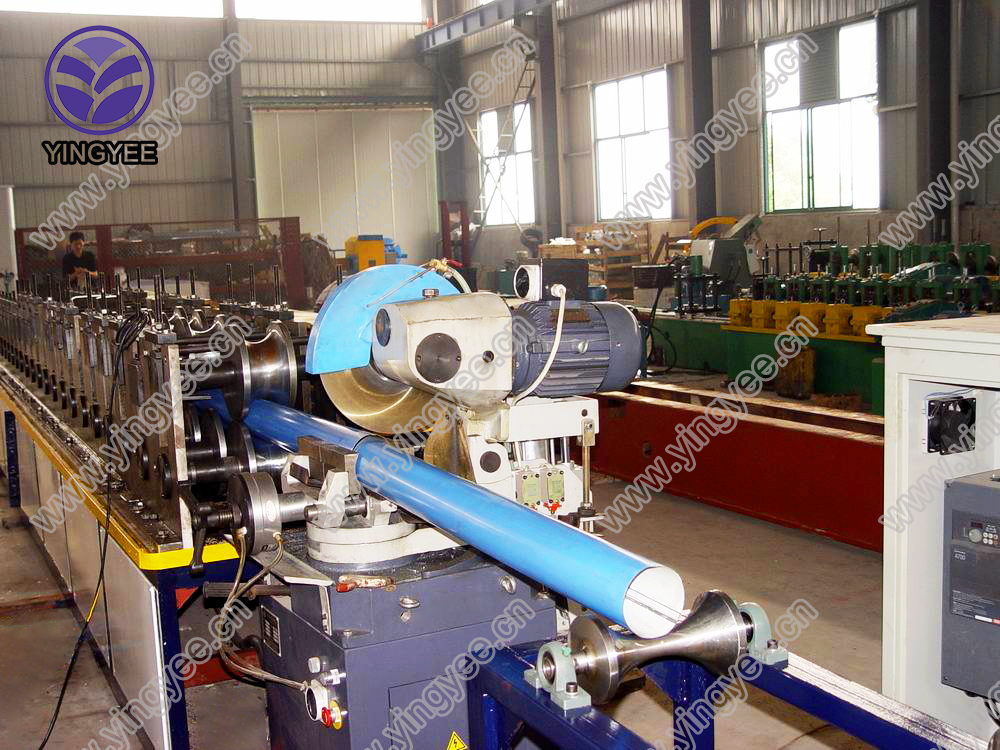
The Innovation and Efficiency of Screw Rolling Machines
In the ever-evolving landscape of manufacturing and metalworking, screw rolling machines stand out as a pivotal advancement in precision forming technology. These machines are specifically designed for the production of high-quality screw threads and other shapes through a process known as rolling. This method offers numerous advantages over traditional machining processes, making screw rolling a preferred choice in various industries.
The Rolling Process
Screw rolling is a cold forming process that transforms a metal workpiece into the desired shape by applying pressure through rotating rollers. This technique significantly differs from conventional cutting methods, where material is removed to achieve the final product. The rolling process not only enhances the material's mechanical properties but also maximizes material utilization, reducing waste.
The operation begins with a cylindrical blank, which is placed between two forming rollers. As the rollers rotate, they simultaneously compress and mold the metal into a screw thread or other intricate shapes. The beauty of this process lies in its ability to work with various materials, including carbon steel, stainless steel, and alloys. The end result is a component that exhibits improved strength and fatigue resistance due to the strain hardening that occurs during the rolling process.
Advantages of Screw Rolling Machines
1. Enhanced Strength and Durability The cold rolling process induces a refined grain structure in the metal, leading to increased tensile strength. This is particularly crucial for applications where components experience high stress, such as in automotive and aerospace industries.
2. High Precision Screw rolling machines are engineered to produce components with extremely tight tolerances. The design of the rollers can be tailored to achieve specific thread profiles, ensuring that each screw meets precise specifications and quality standards.
3. Increased Production Efficiency These machines are capable of high-speed operation, allowing for the mass production of screws and other fasteners. The continuous rolling process significantly reduces cycle times compared to traditional machining, leading to lower production costs and faster delivery times.
4. Material Savings Because rolling reshapes rather than removes material, the process is inherently more efficient. This not only minimizes waste but also reduces the cost of raw materials, making it an economically viable option for manufacturers.

5. Versatility Screw rolling machines can create a variety of shapes beyond standard threads, such as splines, keys, and custom profiles. This versatility enables manufacturers to diversify their product offerings and cater to specialized market needs.
Applications in Industry
Screw rolling machines are integral to multiple sectors, including automotive, aerospace, construction, and general manufacturing. In the automotive industry, for instance, they are utilized to produce high-strength fasteners that require reliable performance under extreme conditions. Aerospace applications benefit from the lightweight and robust characteristics of rolled components, which are essential for maintaining performance while minimizing weight.
Moreover, in the construction industry, screw rolling machines provide the necessary precision for producing components used in pre-engineered buildings and infrastructure. The fasteners, bolts, and connectors formed by these machines ensure structural integrity and longevity, which are critical in construction projects.
Future Prospects
As technology continues to advance, screw rolling machines are becoming increasingly sophisticated. The incorporation of automation and artificial intelligence into these systems is enhancing their efficiency and precision even further. Manufacturers are now exploring more sustainable practices that focus on energy efficiency and reducing the carbon footprint of production.
Furthermore, the demand for lightweight and high-strength materials in industries such as electric vehicles and renewable energy will likely drive further innovations in screw rolling technology. Engineers are continually seeking to refine processes and materials to meet the evolving needs of the market.
Conclusion
In conclusion, screw rolling machines represent a significant leap forward in manufacturing technology. Their ability to produce high-quality, durable components efficiently makes them invaluable in various industries. As innovation continues to shape the future of manufacturing, screw rolling will remain a critical process, enabling manufacturers to meet the demands of an increasingly competitive landscape while also pursuing sustainable practices. With ongoing advancements, the potential of screw rolling machines is limited only by the imagination of engineers and manufacturers.